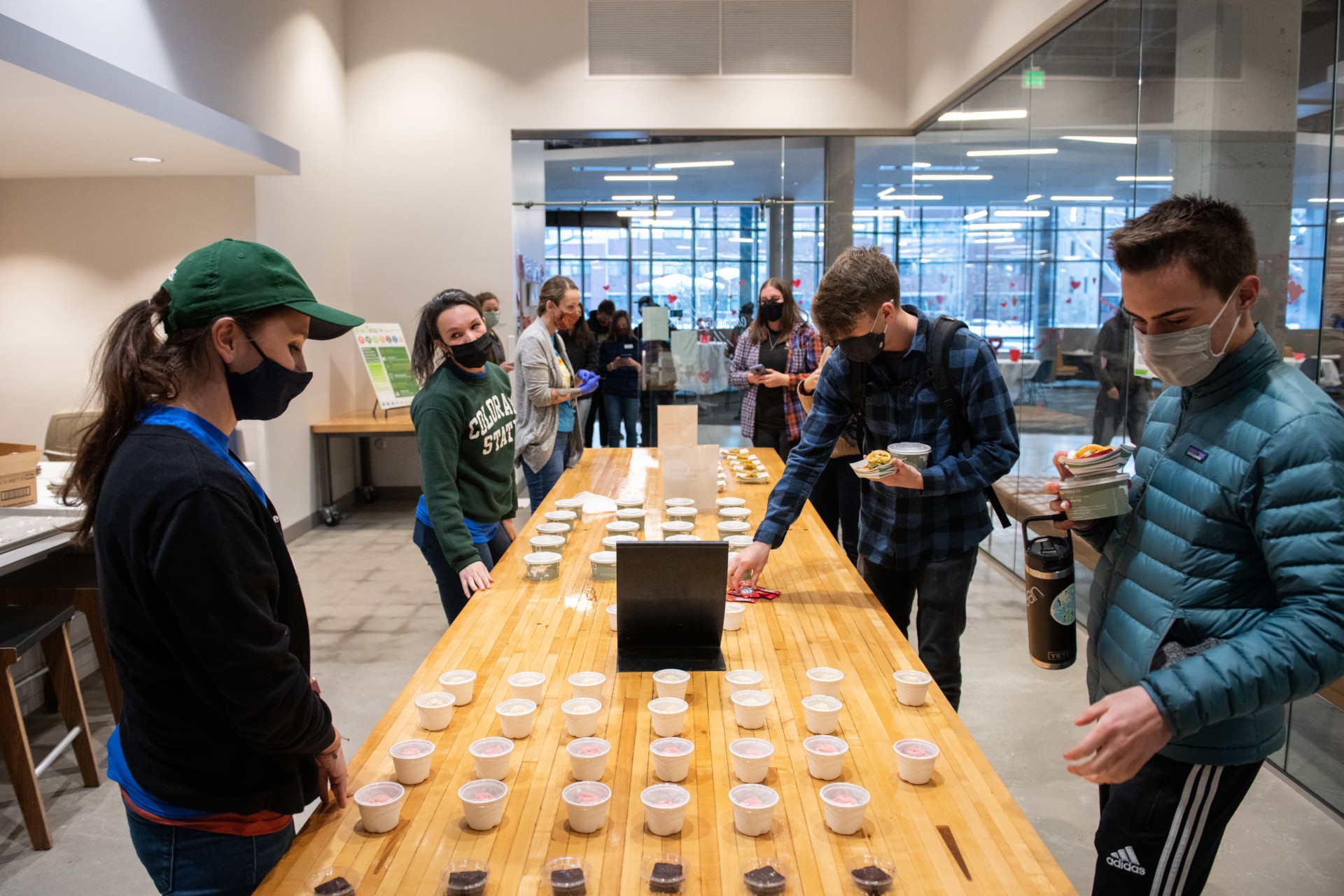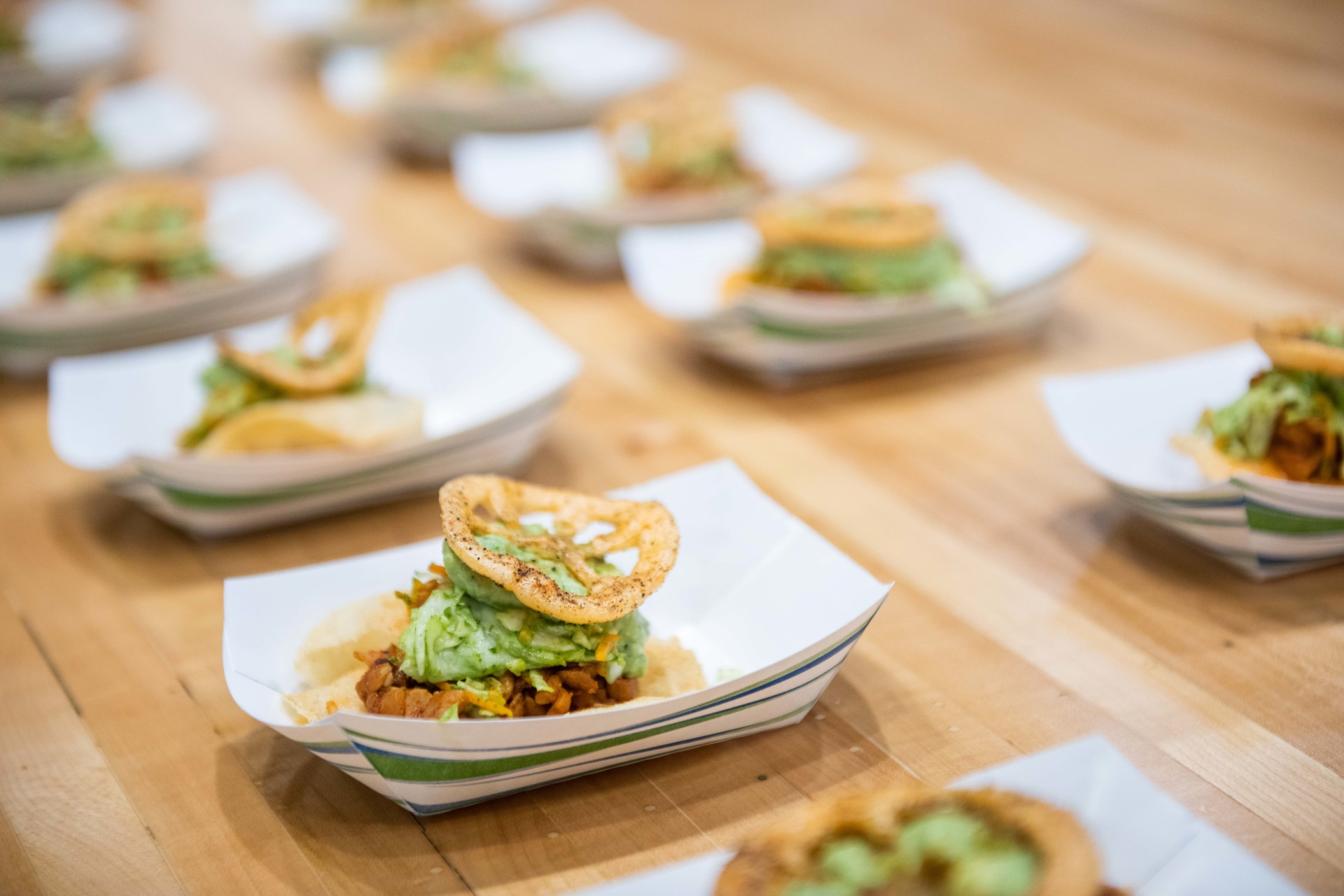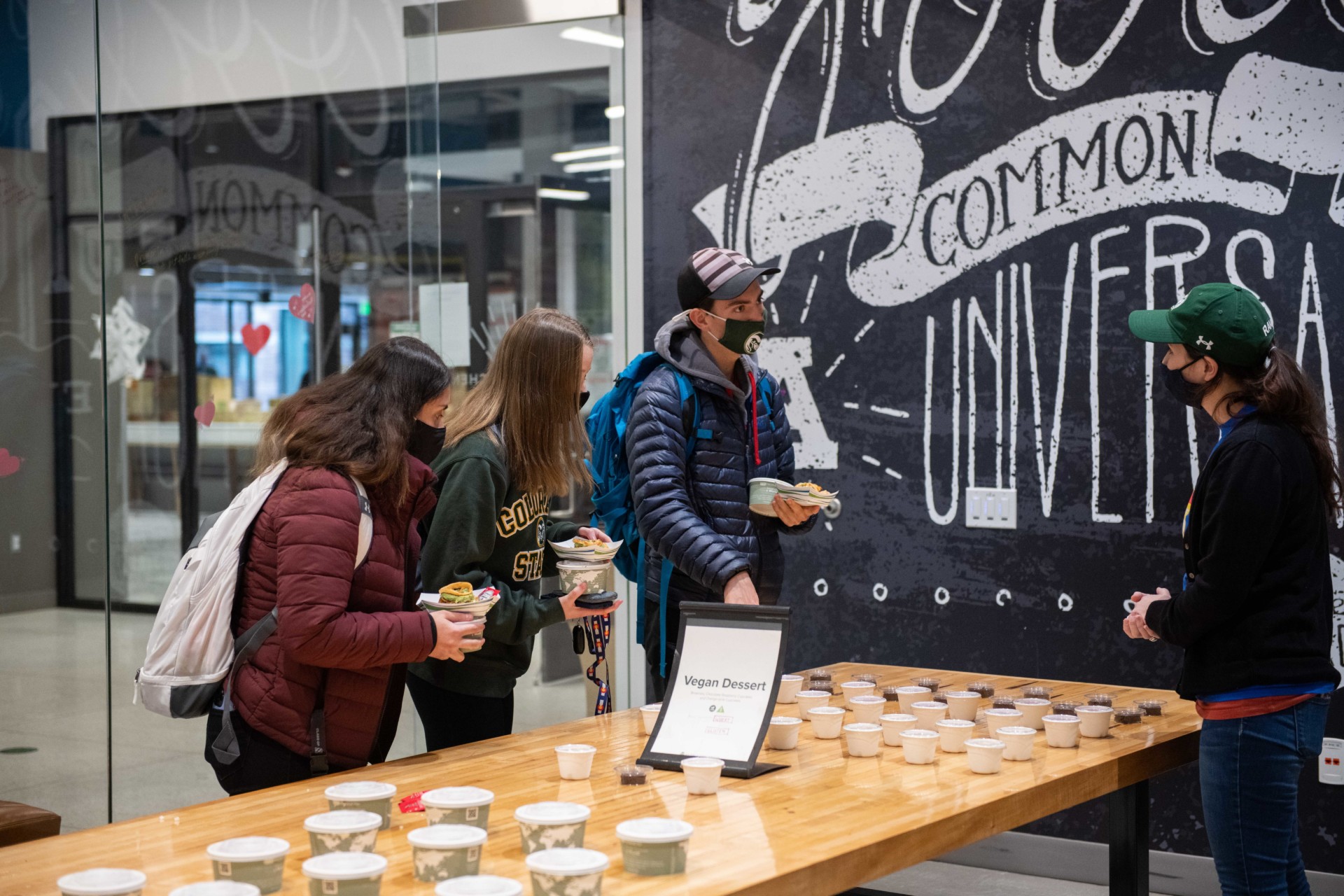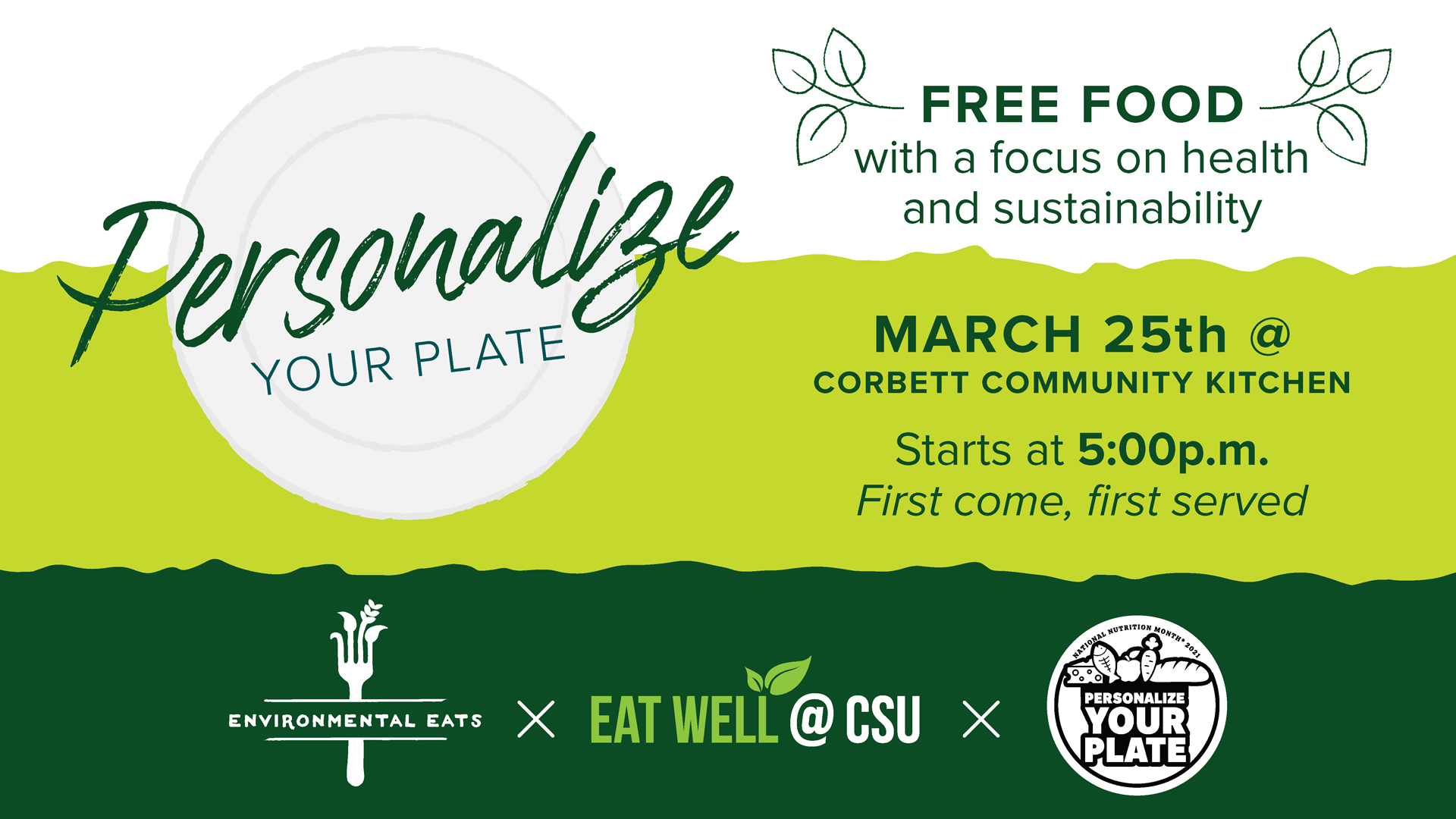
Students attend an Environmental Eats event at the Corbett Hall Community Kitchen.
During a typical year, Housing & Dining Services hosts a variety of programs and events designed to help students with their shift to living on campus and ease the transition to independent living. However in the midst of a pandemic, life in general has been paused, while most campus activities have switched to virtual and digital platforms.
Environmental Eats is one program that has remained viable in a face-to-face setting in the Corbett Hall Community Kitchen. It has been a popular draw for students on campus several times each semester.
Since its introduction in 2018, the program has attracted hundreds of residents to learn about sustainable dining, while showcasing the talents of our HDS chefs. Different themes of this program have included sustainable seafood, insects as food, campus-grown greens and alternative protein choices.
Educational eating


Environmental Eats has regularly been a popular program among students.
Environmental Eats promotes sustainable eating/sustainable food choices and knowledge about where food originates — providing valuable information on how small choices can have large impacts on food systems.
A partnership between Residential Dining Services and HDS Sustainability, the program helps to break up the monotony of the typical dining center meal and provides educational information as a bonus.
“We want to combine nutrition and sustainability into these events, but also include new and interesting foods that students don’t see at a typical meal, such as sweet corn ice cream and avocado chocolate mousse,” said Kirstie Tedrick, HDS sustainability coordinator. “We also want to show how changing or choosing alternative foods/diets can be fun and interesting to explore.”
What is sustainable eating?
Sustainable or environmental eating is realizing that there is a limited supply of resources such as fossil fuels, farmland, clean water and food, and then choosing how to eat with this in mind.
“Sustainable foods are those foods that make less of an impact on the environment while providing ample nutrition by promoting processes that allow for the continued accessibility of nutritious food for future generations,” said Brittney Sly, nutrition and wellness program manager with CSU HDS.
“Sustainable foods are those foods that make less of an impact on the environment while providing ample nutrition by promoting processes that allow for the continued accessibility of nutritious food for future generations.”
— Brittney Sly, nutrition and wellness program manager
As the population continues to grow, the use of scarce resources also increases with significant impacts on fossil fuels, arable land, clean water and food. According to the American Public Health Association, a sustainable food system also encourages local production and distribution infrastructures and makes nutritious food available, accessible and affordable to all.
Educating future generations

Student volunteers help in the education process, providing recipes and other informational materials.
As the concept of environmental sustainability gains traction, so does the interest in sustainable foods/food systems, particularly on the part of students who are becoming increasingly food conscious.
“Students are the future generation who will have an impact and are thus invested,” Sly said.
Student Eco Leaders from each hall help to promote the events through social media and even go the extra mile by personally bringing residents from their halls to the events. Student volunteers distribute materials showcasing sustainable attributes of their meals, as well as recipe cards on how to replicate the food choices in their own settings, at a later time.
During the 2020-21 academic year, Environment Eats has featured several events, including a Colorado Harvest theme and a Mediterranean Diet theme. The last event for the Spring Semester is on March 25 and is based around healthy food choices associated with National Nutrition Month.

Learn more
More information is available on CSU Green Dining at housing.colostate.edu/about/sustainability/green-dining.